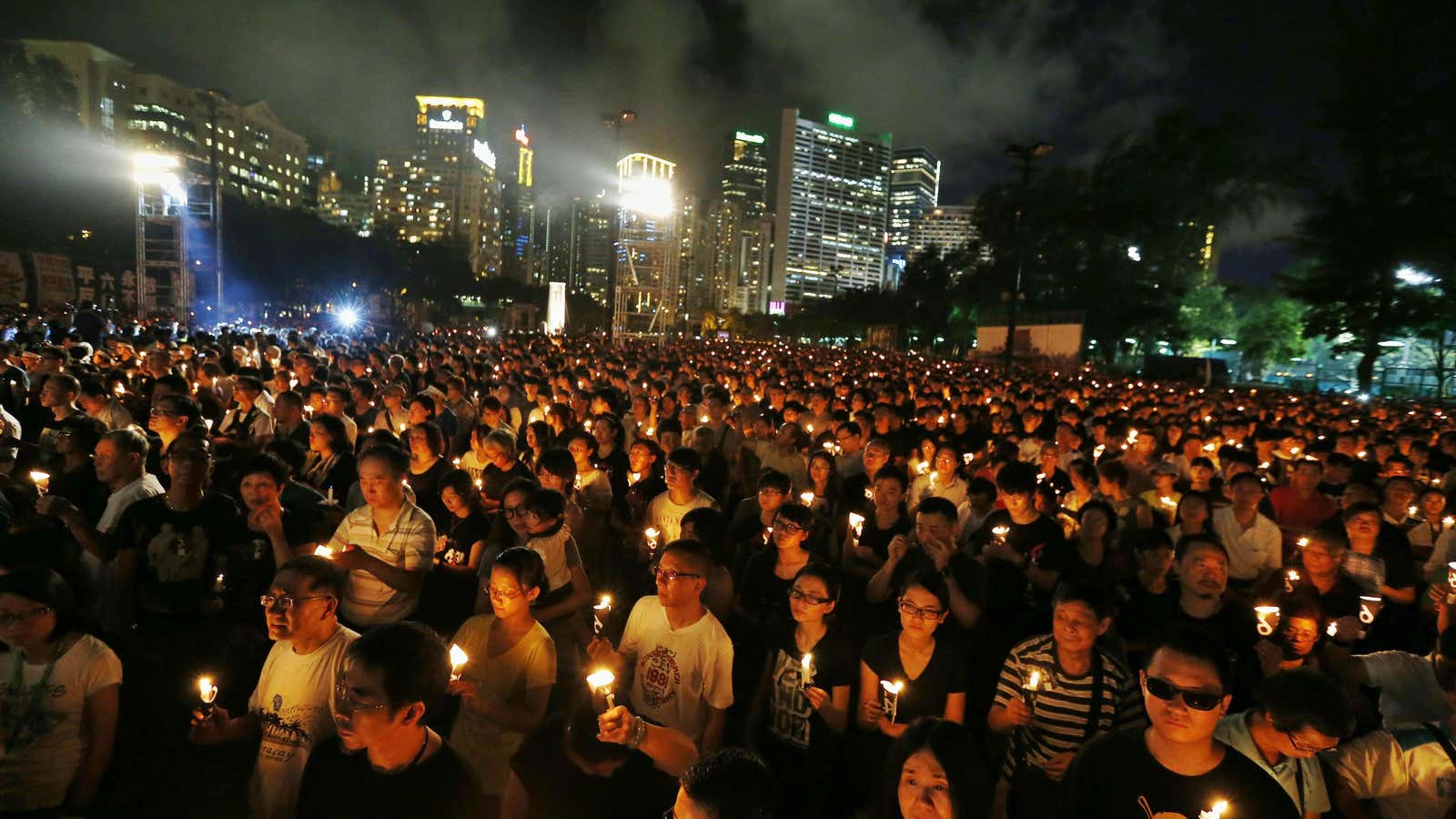Pressured by Beijing, two of Britain’s biggest banks have stopped advertising with Apple Daily, a popular and often salacious Hong Kong newspaper known for its critical stance on Beijing. Mark Simon of Next Media, which owns Apple Daily and is known for its bizarre but detailed animated short films of current events, told the New York Times that HSBC and Standard Chartered stopped advertising with the paper last year, on instructions from the Chinese government.
The two banks, which say their decisions were based solely on commercial interests, are the latest businesses to tacitly side with Beijing amid a looming showdown between democracy groups and China’s Communist Party in Hong Kong. The former British colony was promised a certain amount of autonomy in 1984, ahead of the 1997 handover to Beijing, under a philosophy known as “one country, two systems,” which includes an independent judiciary, capitalism and freedom of speech and the press.
This week, Beijing released a white paper that seemed to roll that backward, stating: “But the ‘two systems’ under the ‘one country’ are not on a par with each other,” and that ”the most important thing… is to maintain China’s sovereignty, security, and development interests.” Incensed, dozens of Hong Kong residents burned pieces of white parchment symbolizing the document, and Next Media released a short film featuring two pandas, one with a Hong Kong flag and another with a Chinese military cap, wrestling. The narrator says, “How much power Hong Kong has fully depends how much power Beijing gives it,” and the panda wearing a Hong Kong flag begins to cry.
Thousands of protesters, from university students to bankers, have threatened to march on central Hong Kong if a proposal to be released this year by the city’s chief executive doesn’t include plans for unfettered direct elections by 2017, a promise Beijing had made as part of the handover.
But here, Beijing has support from foreign business too. The Hong Kong Chamber of Commerce, as well as the chambers of commerce from Canada, Italy, India, and Bahrain–whose members include executives from Air India, Infosys, and the Royal Bank of Canada—have asked the demonstrators to call off their protest and argue their case through other “channels available.” In October, eight Hong Kong and mainland Chinese business groups issued a statement condemning the planned protest, saying it could harm Hong Kong-China relations. And according to Hong Kong’s chief executive, some financial and professional services firms are planning to sue the protesters for any damage caused during the demonstration.
Maybe it shouldn’t be that surprising that British banks like HSBC and Standard Chartered would comply with Beijing’s orders about where they should advertise. After all, they have long historical ties with China, and they and other banks are the largest foreign lenders, after Hong Kong, to Chinese companies.
